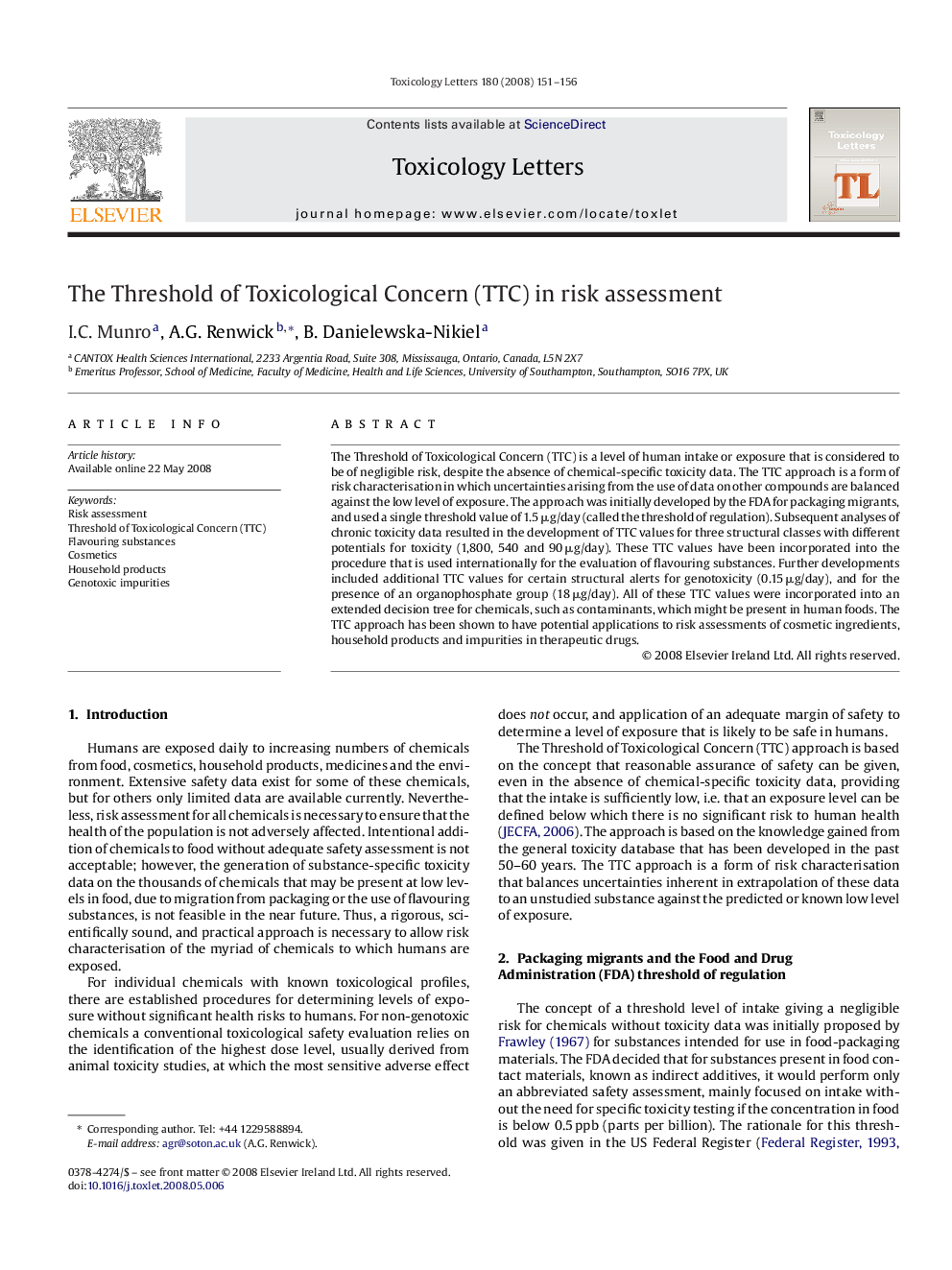| Article ID | Journal | Published Year | Pages | File Type |
|---|---|---|---|---|
| 2601310 | Toxicology Letters | 2008 | 6 Pages |
The Threshold of Toxicological Concern (TTC) is a level of human intake or exposure that is considered to be of negligible risk, despite the absence of chemical-specific toxicity data. The TTC approach is a form of risk characterisation in which uncertainties arising from the use of data on other compounds are balanced against the low level of exposure. The approach was initially developed by the FDA for packaging migrants, and used a single threshold value of 1.5 μg/day (called the threshold of regulation). Subsequent analyses of chronic toxicity data resulted in the development of TTC values for three structural classes with different potentials for toxicity (1,800, 540 and 90 μg/day). These TTC values have been incorporated into the procedure that is used internationally for the evaluation of flavouring substances. Further developments included additional TTC values for certain structural alerts for genotoxicity (0.15 μg/day), and for the presence of an organophosphate group (18 μg/day). All of these TTC values were incorporated into an extended decision tree for chemicals, such as contaminants, which might be present in human foods. The TTC approach has been shown to have potential applications to risk assessments of cosmetic ingredients, household products and impurities in therapeutic drugs.
